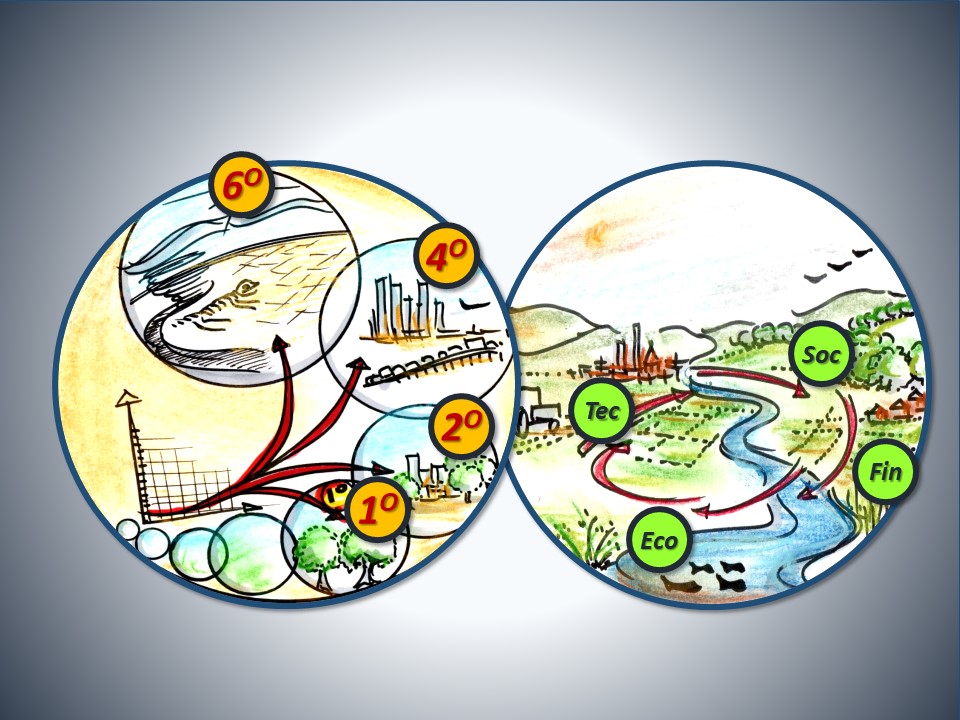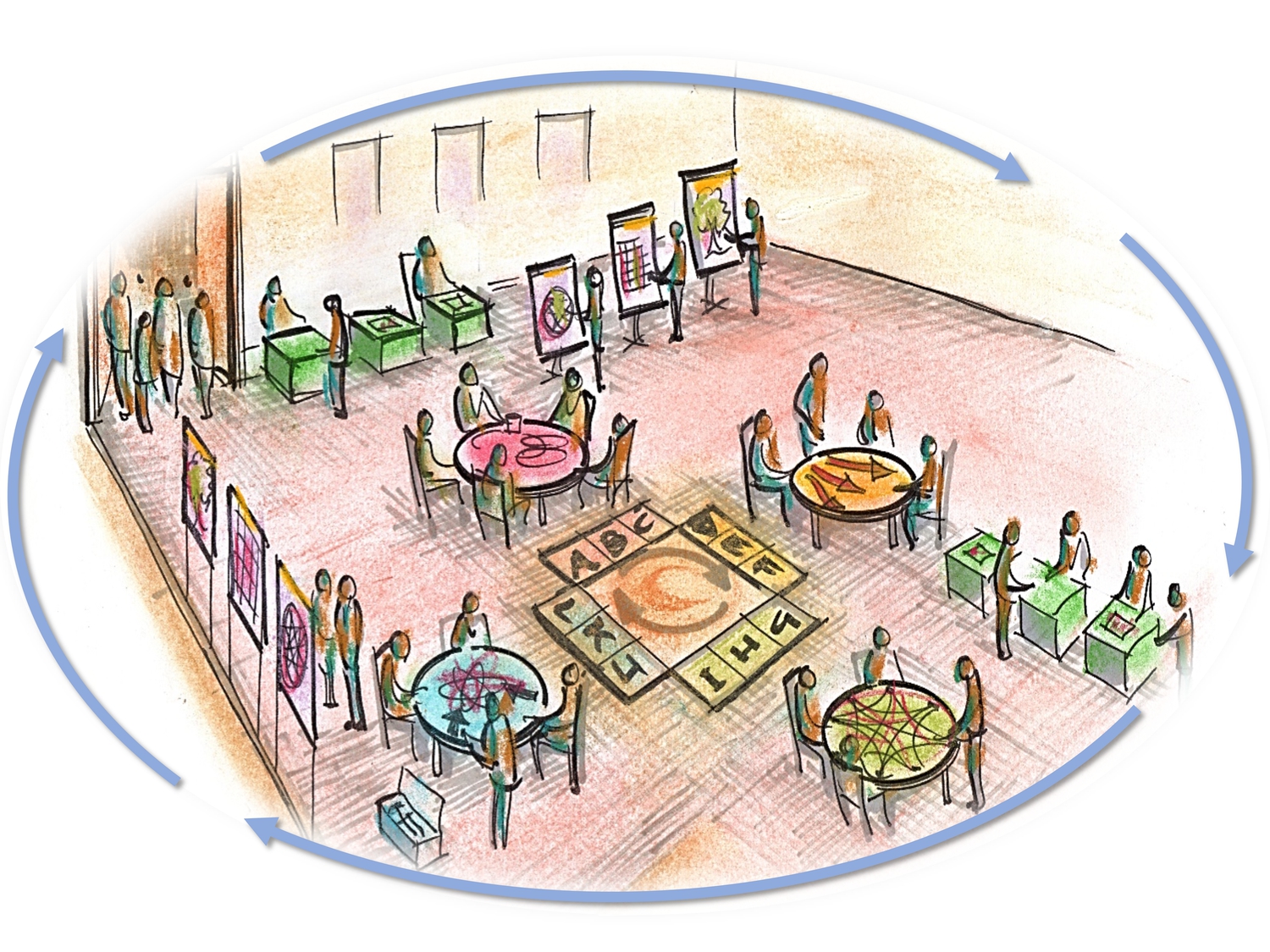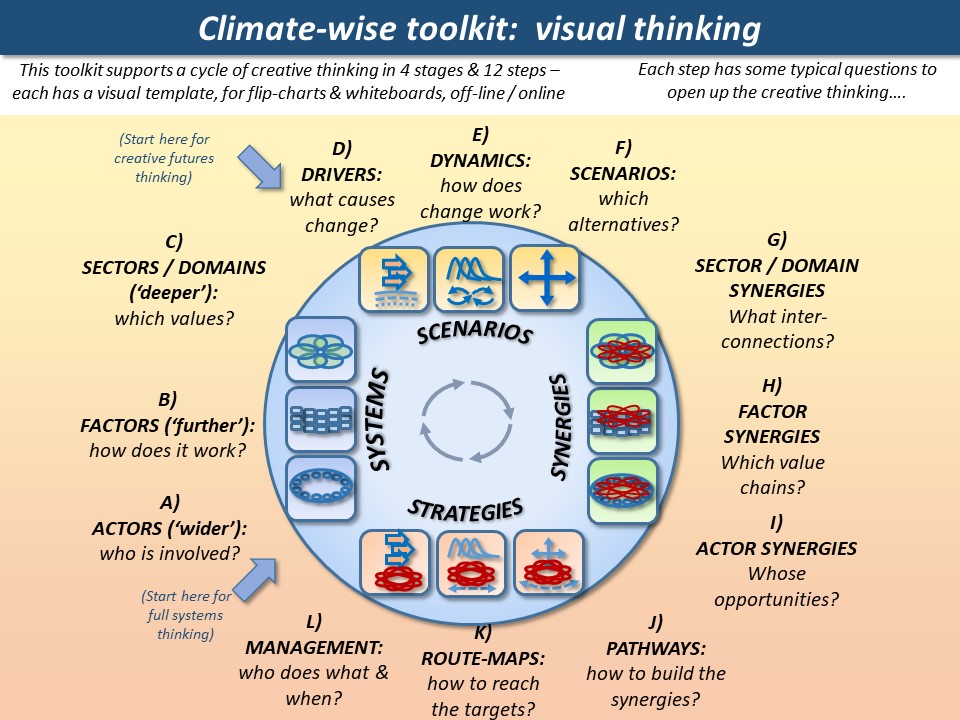CLIMATE – WISE TOOLKIT
A new ‘Climate-Wise’ toolkit has been developed and piloted at the COP26. The inventor Joe Ravetz explains why it is needed, and how it can help:
“Clearly the COP26 struggled with the gap between aspirations and agreed targets. Behind the scenes, it seems that highly technical ‘net-zero’ targets for 2030 or 2050, are a long way from the realities on the ground. Whether you are a subsistence farmer, CEO of a global corporation, or a government with a narrow majority, you can only work within the rules of your game – social, economic, political and cultural. There’s an even bigger gap if we talk about ‘big bad world’ effects – corruption, land grabbing, widening inequality – it seems many adaptation efforts revolve around these, but few want to talk about them.
This Climate-Wise toolkit provides a means to bring all such effects to the surface and bridge the vital gaps – and then explore systematically the pathways to turn the targets into actions. For the net-zero targets and transformations now promised by many governments, this is the most realistic and credible way to (a) get others to commit, and (b) to turn such promises into reality.”
At the moment the toolkit is a prototype. The next steps are to develop and test the full online version, take it to the COP27 in 2022, and put it into action for the ‘joined up thinking’ so urgently needed.

About the toolkit
This Climate-Wise toolkit is one application of a more general approach which has been developed over a decade. The Synergistic Toolkit (aka ‘Pathway Toolkit’) is a way of working with problems of deeper complexity (social, technical, economic, ecological, political and cultural): and designing forward pathways based on collective intelligence.
A ‘Net-Zero City’ for example, has to somehow connect environmental targets with many other agendas – social inequality, fragmented governance, or intrusive technology, to name a few. This is very challenging, as it crosses many boundaries of knowledge and expertise.
‘Synergistics’ – the science and art of working with synergies – has been developed for such challenges. It provides practical methods and tools, to help explore and enable ‘collective intelligence’, in any relevant area. For climate change, some issues are especially relevant:
- Net-zero transitions for communities, cities, regions, or bio-regions
- Net zero supply chains or value-chains, with eco-business / finance models
- Climate adaptation & resilience for communities, cities, regions, or bio-regions
- Climate adaptation & resilience for policy, business, civic society and research
To explore the ‘collective climatic intelligence’ potential in each of these, calls for creative, collaborative and visionary thinking. For this we use the Climate-wise Toolkit, with a very flexible four stages:
- System mapping: mapping baseline syndromes / problems on the table: (‘co-learning’):
- Scenario mapping: mapping drivers of change & alternative futures: (‘co-knowledge’):
- Synergy mapping: design of opportunities, synergies, innovations: (‘co-creation’):
- Strategy mapping: design of practical pathways, road-maps, policies & projects (‘co-production’).

For further guidance see the pages on the synergistic toolkit/
Some example applications –

